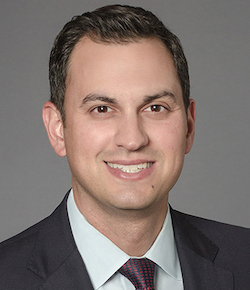|
|
|
|
|
|
| |
| The Stalking Horse: To Be or Not to Be? |
| “Stalking horse” is a term that instills hope in the minds of creditors and debtors while striking fear in the hearts of other bidders. When running a § 363 sale process, identifying a stalking-horse bidder (the bidder that submits the highest and best initial bid) lays the groundwork for the rest of the proceedings. The stalking-horse bid effectively sets the floor price for the assets and is used to entice other groups to pay more and eventually participate in an auction. So why would anyone choose to be the stalking horse? |
| |
|
|
|
|
| |
|
| |
| Bring Me a Higher Bid: The Highest or Best Standard for § 363 Sales |
| More U.S. companies filed bankruptcies with liabilities exceeding $1 billion in 2020 than in any year since 2009. Bankruptcy courts are often left with difficult decisions in these complex bankruptcies, including whether to approve the winning bid in an asset sale under § 363. Part of the difficulty is applying the standard for approving a winning bid. Bankruptcy courts have recently questioned whether they are allowed to consider public interests in approving § 363 sales, especially when a lower cash value bid incorporates public interests and a higher cash value bid does not. Although it is not a clear path to openly consider public
interests, the “highest or best” standard may provide the groundwork for bankruptcy courts to approve bids that take public interests into account.
Under § 363(b)(1), a debtor in possession may use, sell or lease property of the estate after notice and a hearing. Once a bankruptcy court determines that a sound business justification exists for the proposed sale of estate property, the court must ensure that the debtor has provided all interested parties with adequate and reasonable notice, the sale price is fair and reasonable, and the purchaser will sell in good faith. If there are objections to the proposed sale, the debtor must seek approval of the proposed sale from the bankruptcy court.
|
| |
|
|
|
|
| |
|
| |
| Attention Buyers of Assets in Bankruptcy: How to Be a Good-Faith Purchaser and Ensure that Any Post-Closing Challenges Will Be Dismissed as Statutorily Moot Under § 363(m) of the Bankruptcy Code |
| Reprint Permission: Ronit Berkovich and Theodore Heckel, authors of the Weil Restructuring blog post titled “Attention Buyers of Assets in Bankruptcy: How to Be a Good Faith Purchaser and Ensure Any Post-Closing Challenges Will Be Dismissed as Statutorily Moot Under § 363(m) of the Bankruptcy Code,” grant permission to the American Bankruptcy Institute’s Asset Sales Committee to republish this blog post in their newsletter.
Two recent district court decisions, each involving appeals of a bankruptcy sale order where the appellant(s) failed to obtain a stay pending appeal, provide insight into statutory mootness under § 363(m) of the Bankruptcy Code. In both In re HDR Holdings Inc. and Barnes v. 309 RTE 100 Dover LLC, the appellant(s) advanced arguments designed to avoid mootness by challenging the respective bankruptcy court’s finding that the buyer was a “good faith purchaser.” The appeals were dismissed as statutorily moot in each instance. The district courts’ analyses illustrate the challenges appellants face when seeking to avoid statutory mootness under § 363(m) and underscore the importance to purchasers of developing a solid factual record during a sale process. And we may soon get even more guidance on this important topic, as the Barnes decision
was appealed to the Second Circuit Court of Appeals.
|
| |
|
|
|
|
| |
|
| |
| Asset Sales Committee Leadership for 2021 |
| The Asset Sales Committee is proud to announce our new leaders for 2021!
You can also visit the committee's homepage for more newsletter articles, relevant recordings and other committee information.
The committee is always eager to welcome new volunteers. Please contact any member of our leadership team to find out how you can get involved.
|
 |
| |
Randye B. Soref
Communications Manager
Polsinelli
Los Angeles |
| |
|
 |
| |
Matthew J. LoCascio
Education director
SC&H Capital
Ellicott City, Md. |
| |
|
 |
| |
Leyza Florin Blanco
Special Projects Director
Sequor Law
Miami |
| |
|
|
| |
|
|
|
|
|
|
|
|
|
| |














